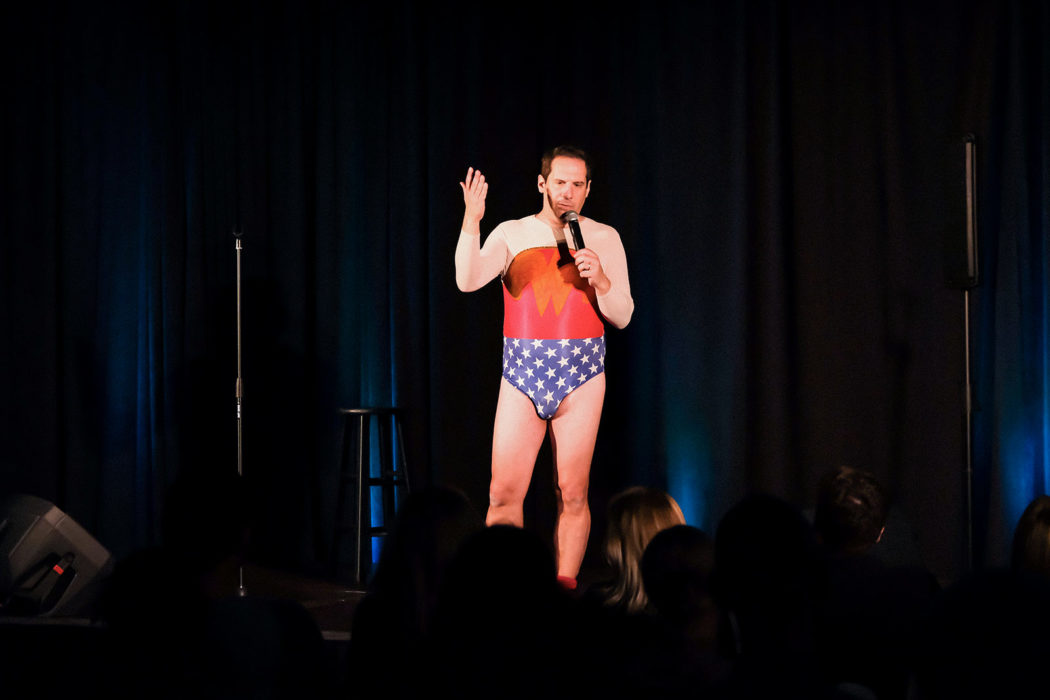For 2022, Whalebone has teamed up with Graduate Hotels, beautifully designed places to stay in college towns across the US, to bring our audiences four in-person event experiences at select Graduate locations. Aptly named “The Extra Credit Series”—these events coincide with some better than good Whalebone Magazine issue themes for the year: Comedy, Photography, National Parks, and Dolly Parton—each event is tailored to a theme and will impart a little knowledge, a few laughs, and hopefully, a good time had by all.
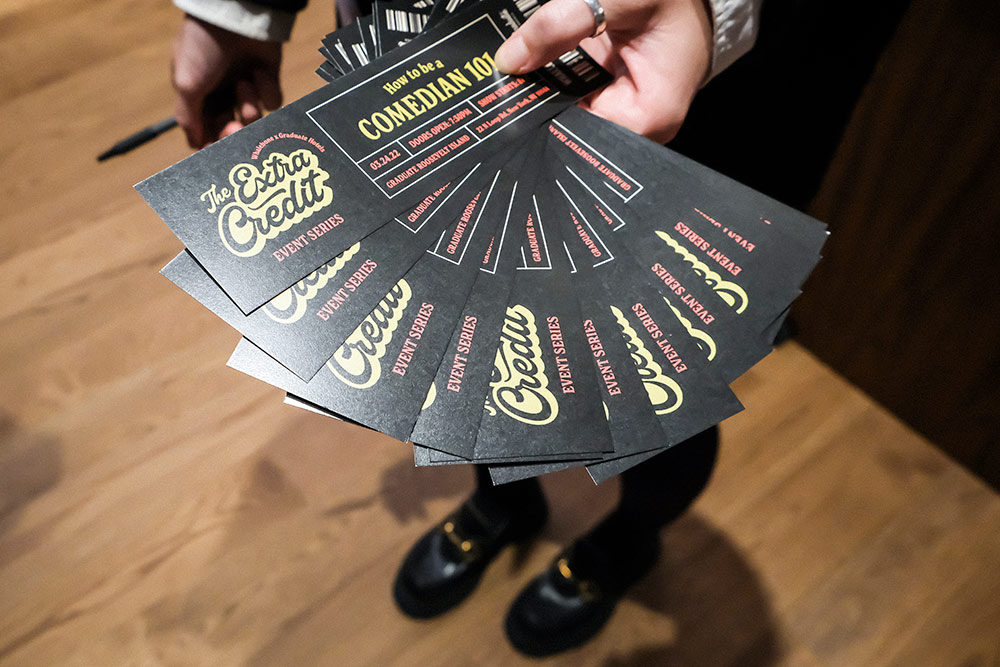
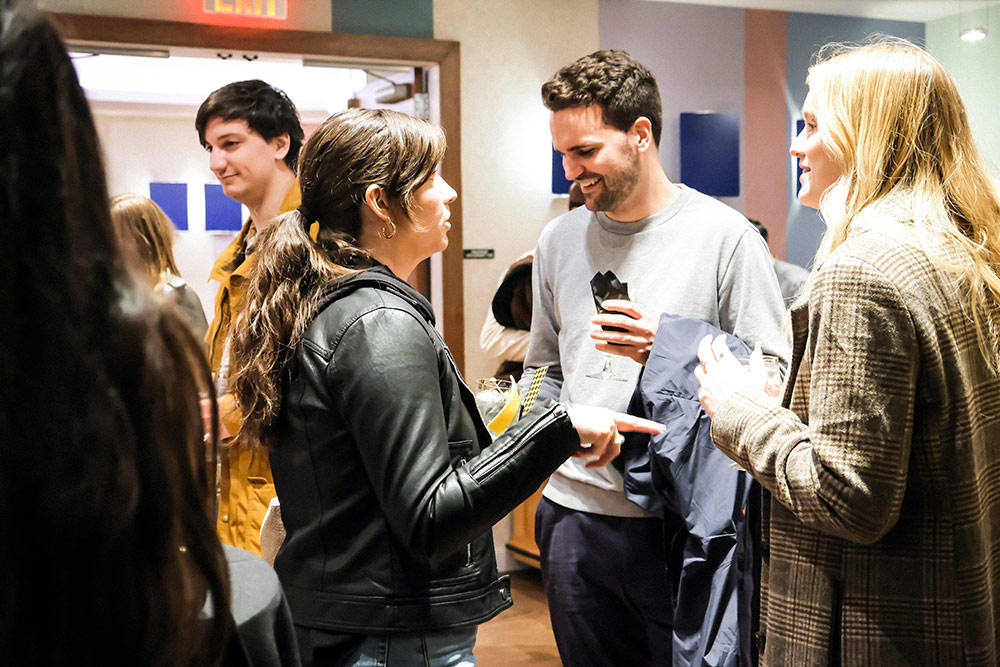
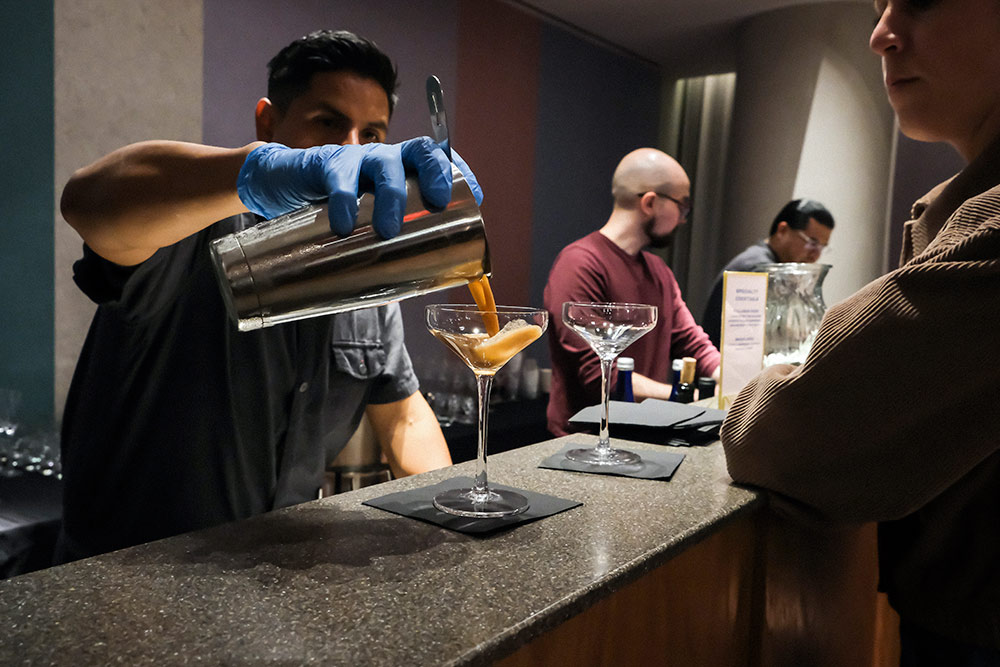
The first edition of Extra Credit took place at Graduate Roosevelt Island with a night of comedy, featuring talent curated by the ever-funny Seth Herzog of The Tonight Show. We asked him the following…
The part of a comedy career that always surprises people…
One of the great tenants in starting out in comedy is the axiom—take every gig. Perform as much as you can, all the time. That builds character and strength on stage and being able to handle or not freak out over any weird circumstances. One thing I’ve realized over the years is that people seem to think you can throw up “comedy” shows anywhere and it will work. So untrue. Comedy is a VERY delicate art and needs the exact right circumstances to survive and thrive. SO many times I’ve been asked to do a show (and this is well into my career) where there’s no stage, or there’s no mic, or there are no lights, or everyone will be standing the whole time. Way more times than you’d imagine. I’ve learned when someone asks me to do a show, and it’s not a place that normally does comedy, there’s a long list of questions you have to ask and get “yes’s” from before you do it. First one: will there be a mic and a speaker? You’d be surprised how many times the answer is a long pause…
The strangest experience you’ve had while living out of hotels…
One time in Cleveland I was staying at the Holiday Inn across the street from the Rock & Roll Hall of Fame. It was a Saturday night, I was in the hotel bar with a few guys I knew, and a large group of bachelorettes from Toledo came in. They had come from Toledo to Cleveland to party in the “big town.” But they didn’t know where to go. And I didn’t know either. So I said, “come up to my room,” and they did. We got pitchers from the bar and brought everyone upstairs and partied in the hotel until late.
Advice for up-and-coming comics…
I get that you want to be big on TikTok or YouTube. And the way to do that is to do outrageous pranks, etc. But pranking innocent folks does not make you a “comedian.” If you want to be a comedian—perform on stage. All the time. Now, you can film it and post clips, that’s fine. BUT I really advise you to not do that [film] for the first three years of performing. I know that sounds so stupid, but you’d much rather post clips of great seasoned performances than half-assed bits that only you think went well.
Seth is sage. A little more on the event…
The “How to Be a Comedian 101” Lineup:
Eddie Pepitone, Jo Firestone, Morgan Murphy, James Austin Johnson, and Matt Friend. The show was followed by an after-party at The Panorama Room, the rooftop bar at The Graduate Roosevelt Island where you can catch the best view of NYC. Tunes by Khalil Asmall at the after-party.
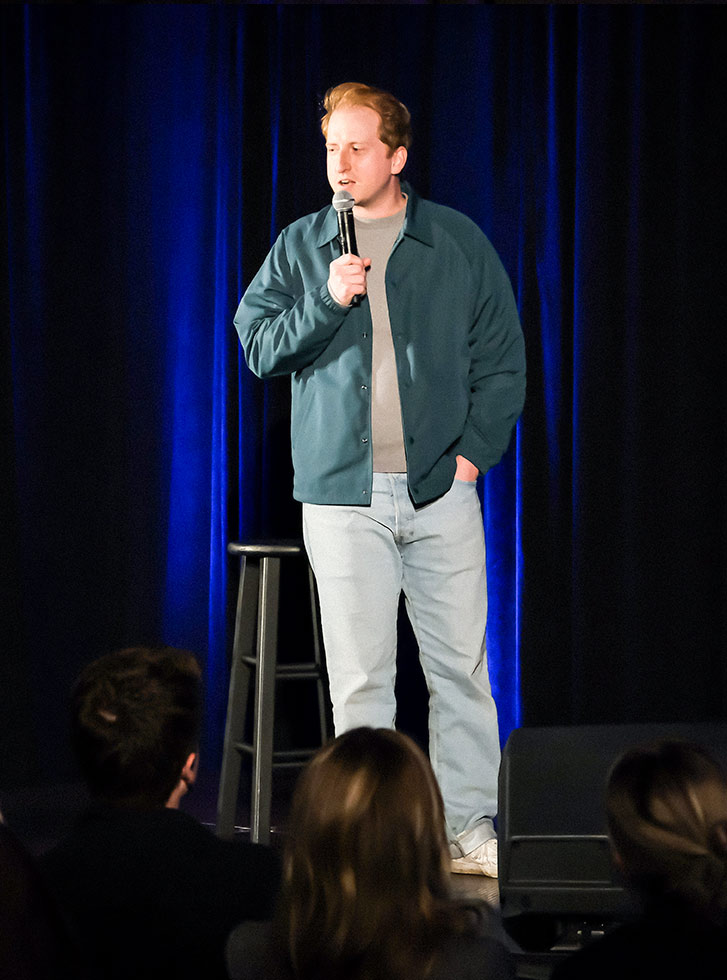
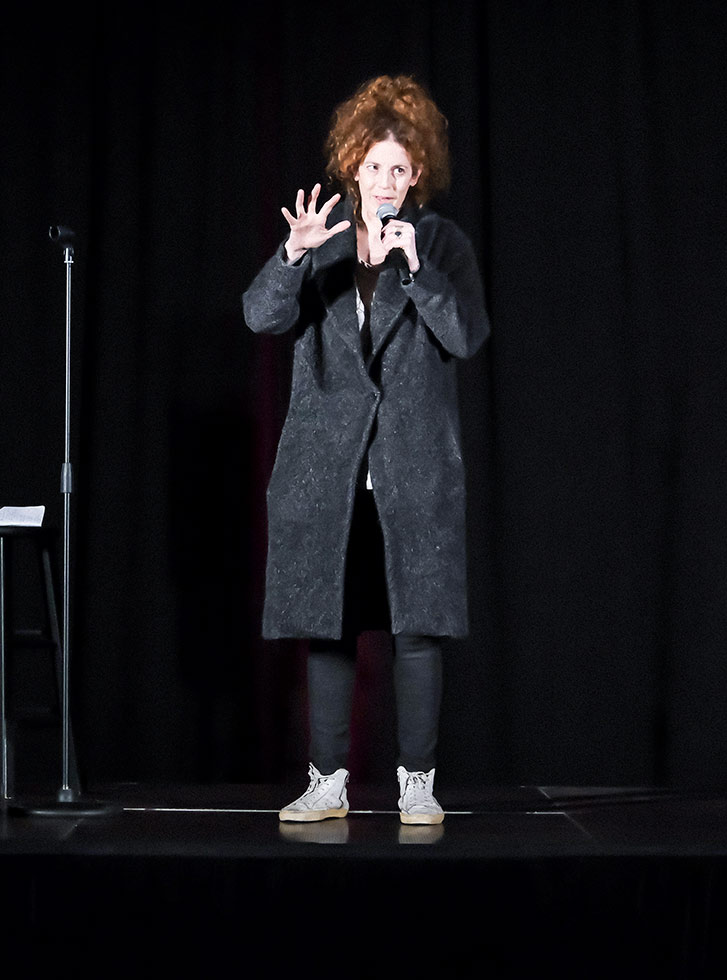
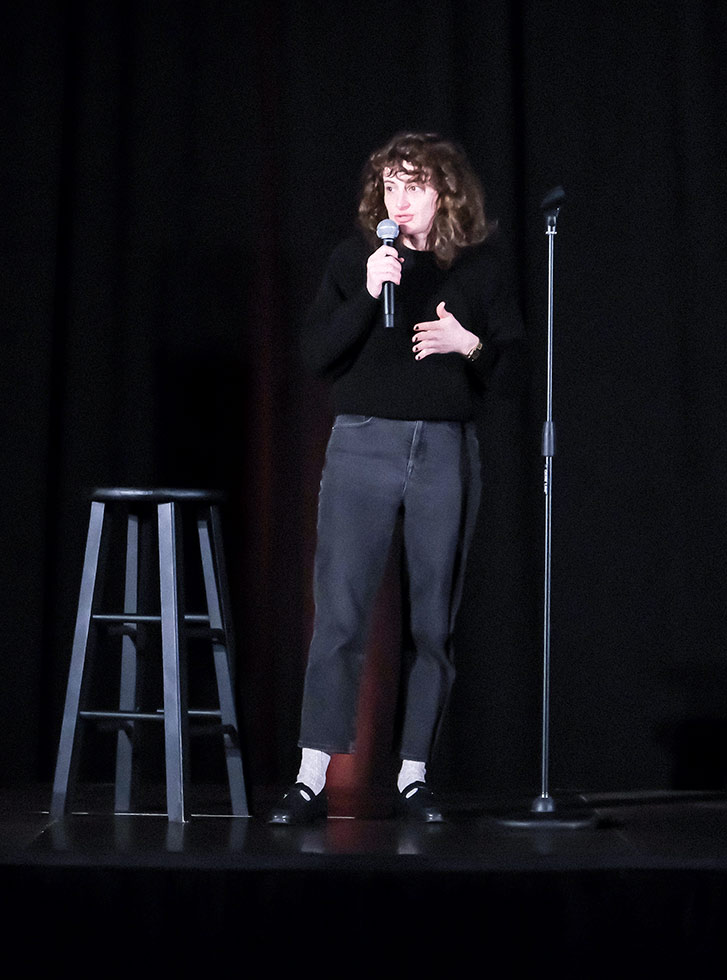
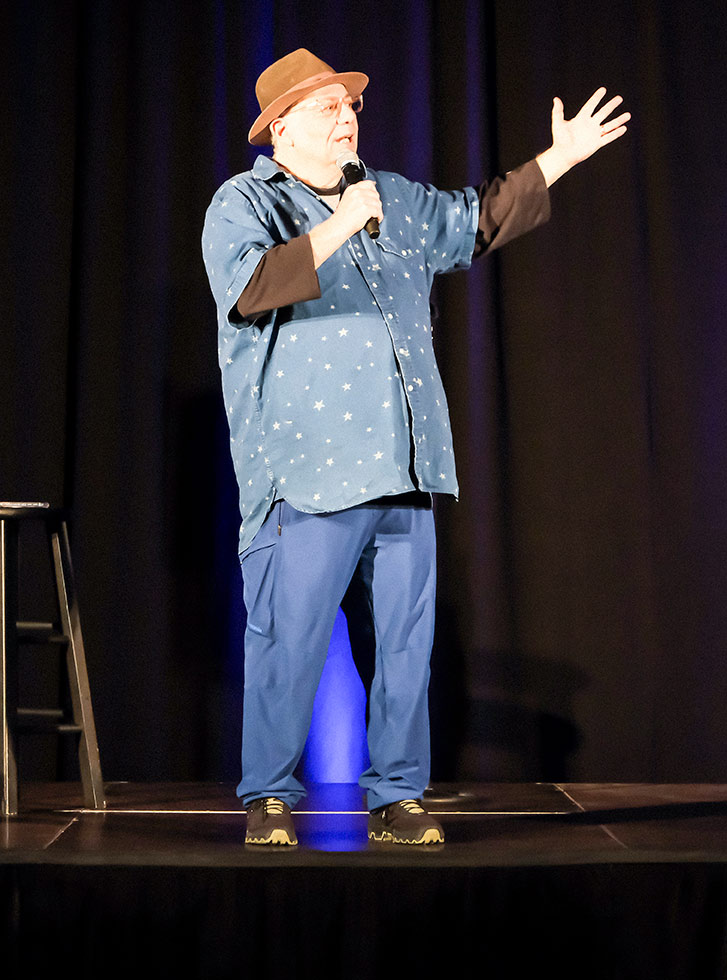
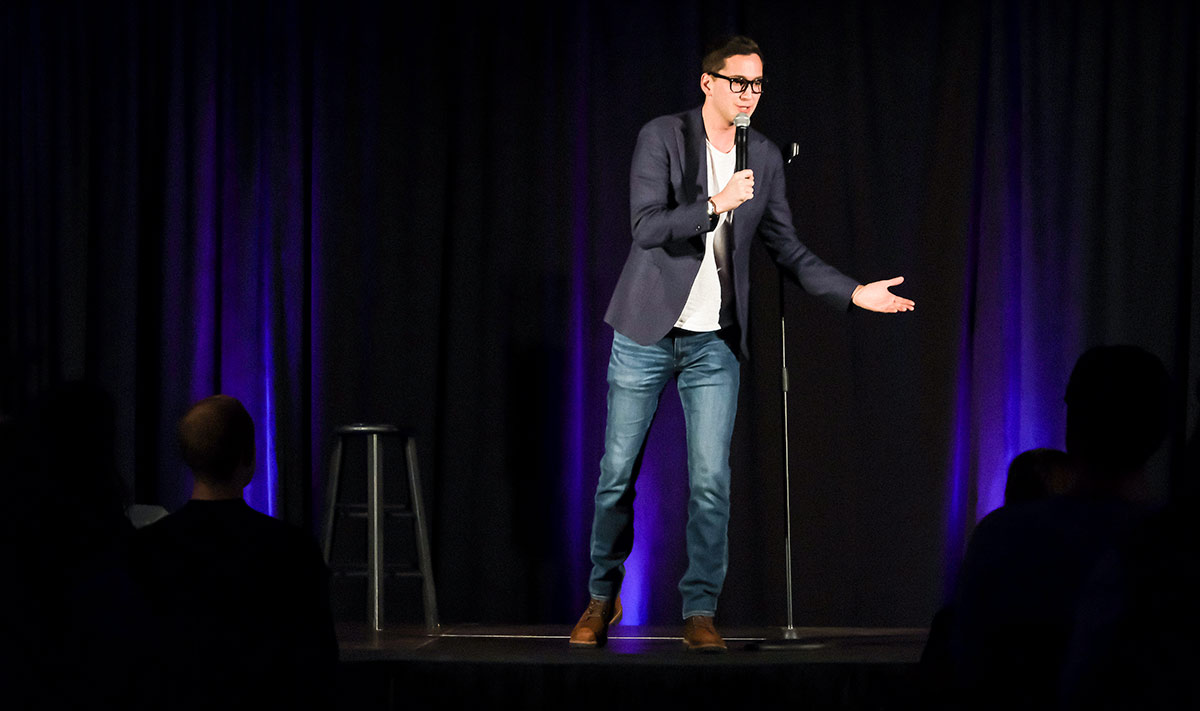
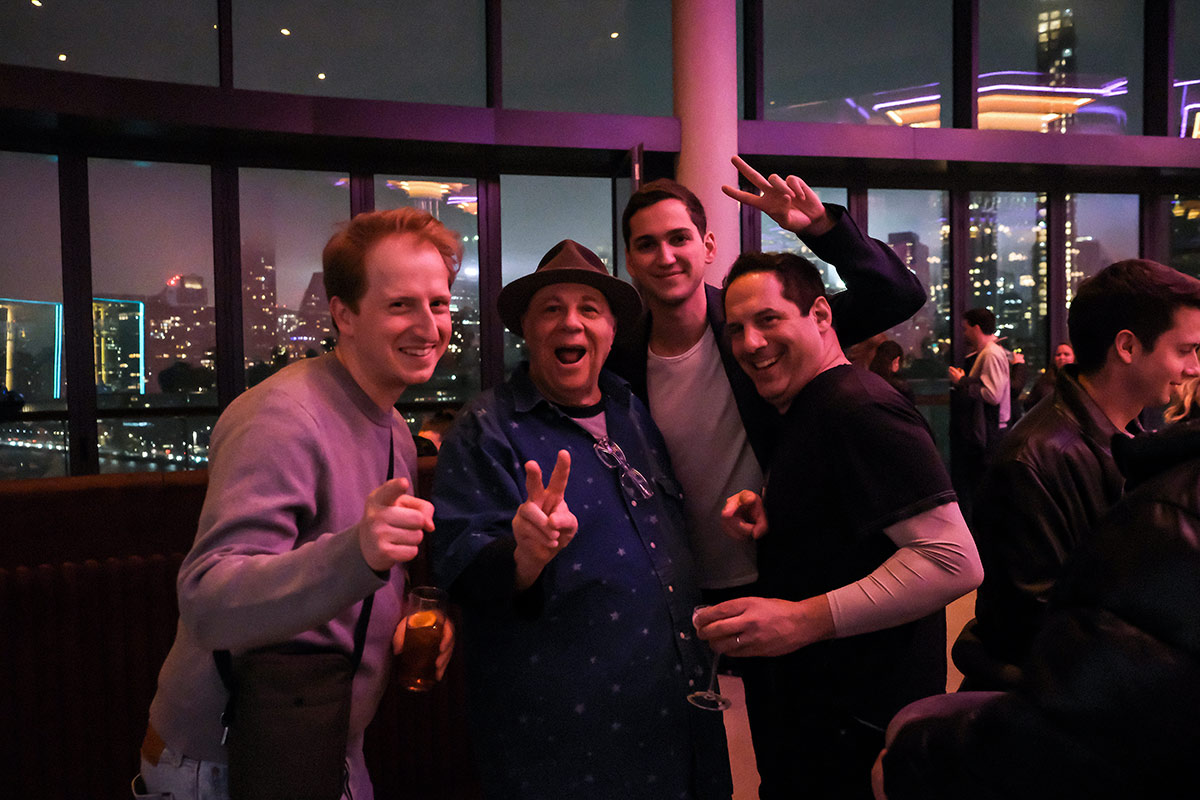
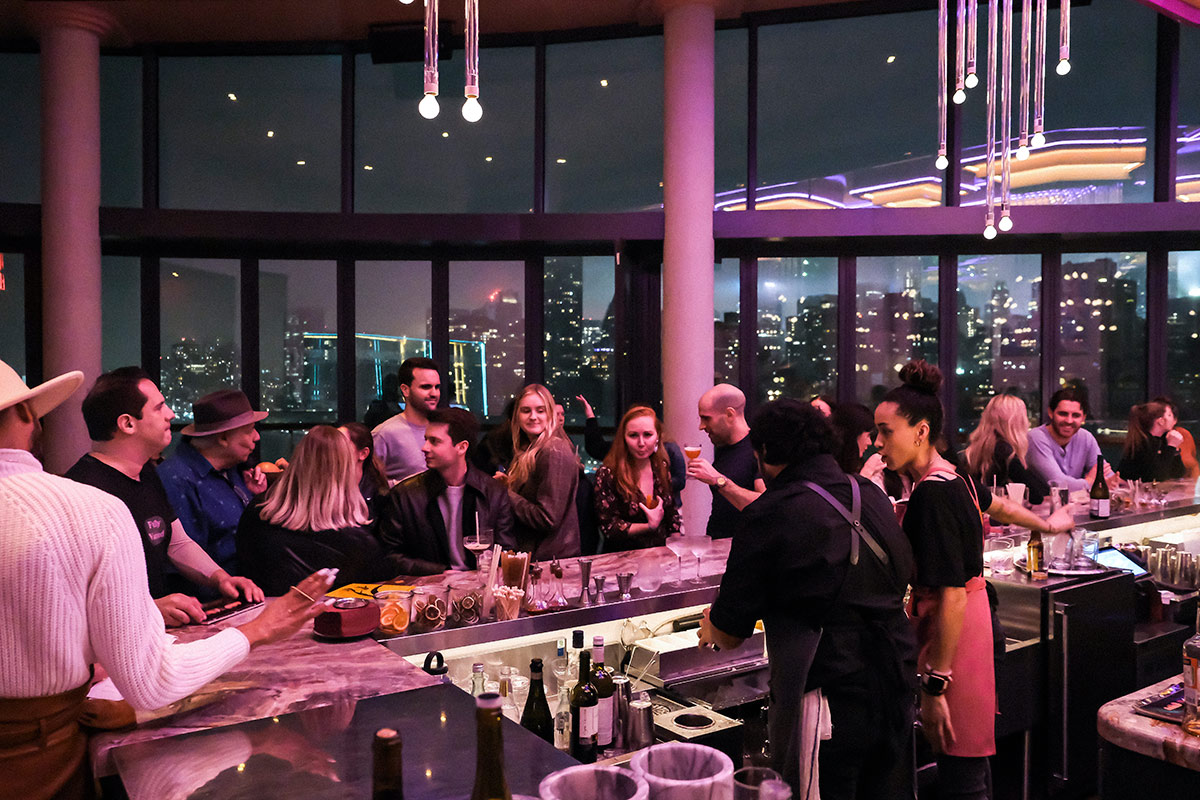
If you missed this one, not to worry—we brought a little of the experience to you.
Graduate Hotels is geared toward humans in their more formative years and with that and comedy in mind, we asked a few of our funnier friends if they wouldn’t mind imparting their formative stories of coming up in comedy for anyone who might have missed this particular evening but still might want to glean a thing or two.
Jordan Carlos
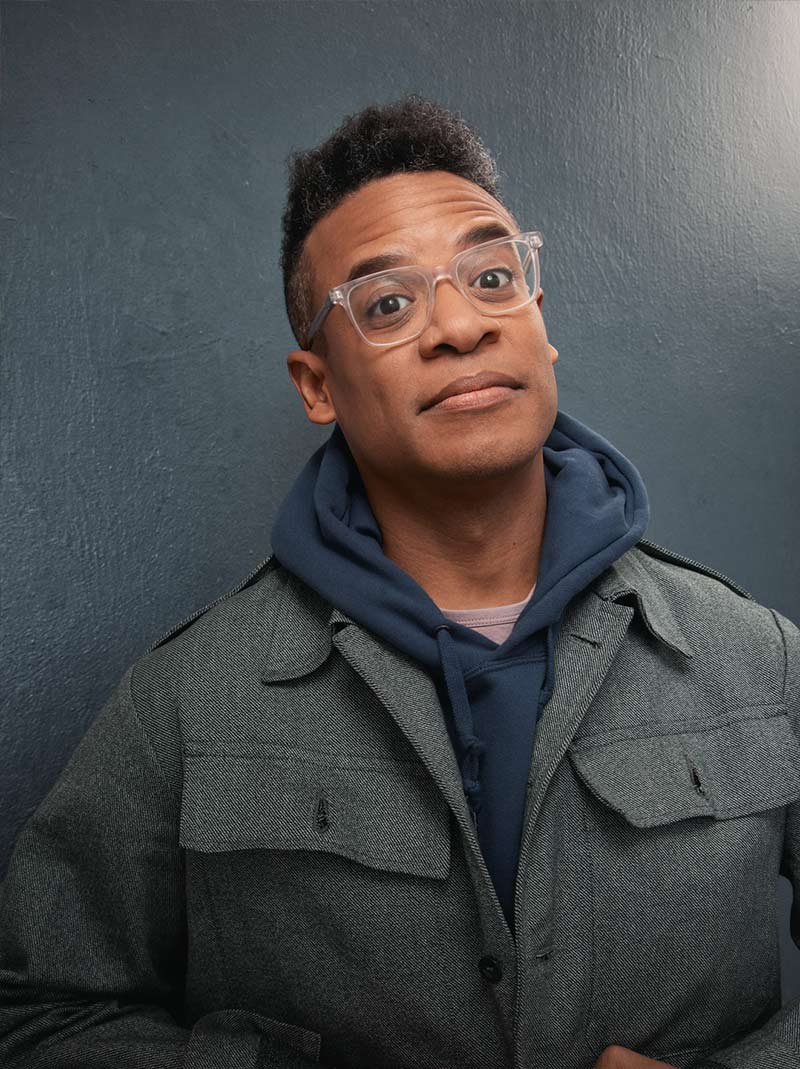
My start in comedy came pretty early. Back when I was just a little kid, my siblings and I would spend our summers in Mississippi. When it got too hot outside (when wasn’t it in Mississippi?!) we would retreat to my cousin’s room. My cousin was super creative—a natural-born comedian and cartoonist. He is so funny he even made me laugh during our great grandmother’s solemn funeral—something that didn’t sit well with my mother. I can see her glowering eyes right now. But that’s a story for another time. My cousin’s mind crackled with creative ideas. We were always putting on shows for our parents or dressing up like our favorite superheroes, but then one day he hatched an idea—a pirate radio station! Well, semi-pirate. OK, in no way pirate because we were kids and did not have a clue about how pirate radio worked. We’d just seen Pump Up The Volume with Christian Slater and thought, ‘He’s cool, so fuck it!’
What D99 became was a mix of the songs by the artists we were listening to at the time—Run DMC, Public Enemy, LL Cool J, etc—and funny little skits, parody ads, and interviews that cracked us up upon replay. Summer after summer we’d pump out content and programming on our Sony dual tape decks, and summer after summer I got more comfortable trying to be funny in front of others. If I hadn’t made those goofy tapes with my cousin on those interminably hot summer days, I wouldn’t have become a comedian. That experience alone taught me timing, editing, and brevity—we only had so many tapes and those Maxells cost money! After a few summers, we threw out our tape deck for a CD player and D99 folded up shop permanently— Awwwww, sad. 🙁
These days my cousin never forgets to remind me of how my career started. Whenever we have a catch up about what new project I’m working on or how he caught me on this series or that movie, he’ll always say, “You know how this all started, right?!” Invariably I will giggle and shake because he knows that I know that we know it’s true—D99!
I am horrible at transitions and finding throughlines, so screw it. If you’ve made it this far into my TedTalk, you’re likely wondering what piece of sage advice I can share with you. That was the assignment anyway. My talented and fantastic editor asked me to impart upon the youth culture with something to grow on—a lodestar that could save folks on the come up from a lot of the unnecessary and humiliating agony. If there is one such chestnut it would be this—hanging around is an actual skill. Our society prizes youth above talent, and in my experience I’ve found that when people convince themselves that they are past their prime, they’ve already sunk. My advice is to not get caught up in the mad rush to be the youngest or the first. Honestly, be the oldest. Like a divorced dad going back to continuing education, you’ll appreciate whatever you get that much more. You’ll be comfortable with it. Works for me anyway. I got a starring role on a sitcom last year and it was likely my last best chance to do so. I can tell you that attaining it has been that much sweeter. I can share this achievement with my family, cause—duh!—at my age I have a family! I don’t know if I’ll ever win an award for my work and frankly, I don’t care. It’s hard enough getting a job. But when you can take your kids to set and show them around as you live your dream, you’re thriving.
The part of a comedy career that always surprises people…
Jordan: The part of comedy that never fails to surprise people is how many times a week I perform. I perform an average of 5-10 times and that’s very low. Some people perform at least twice a night seven days a week. It takes this much performing to achieve complete grasp of your jokes, and unfortunately unlike other arts like music or acting comics have to practice in front of an audience.
The strangest experience you’ve had while living out of hotels…
I was quarantined for two weeks in a very nice hotel while shooting a film in Montreal. Over the course of those two weeks I quit coffee and took up yoga. I guess I booked the “transformative suite!”
Ruby Karp
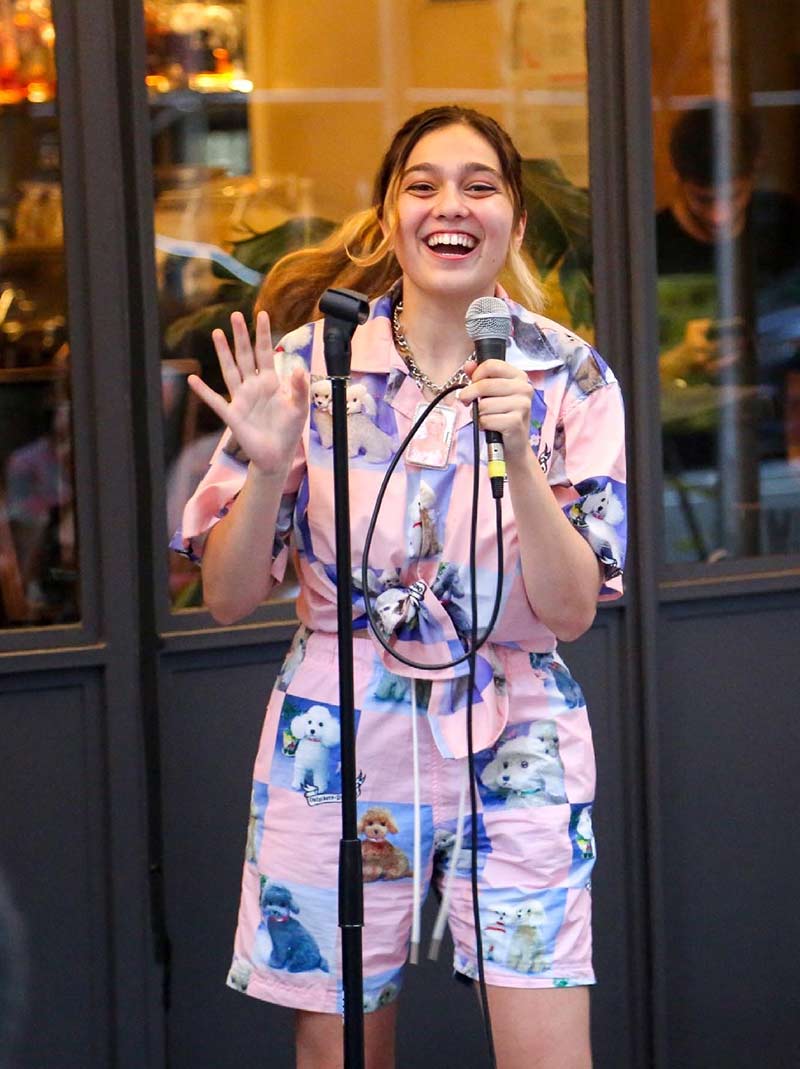
Hi! I’m Ruby Karp. Right now, I’m 21 years old, and in my final semester of college. I’ve been doing stand-up for 10 years. I got into it by being the resident child at UCB, Upright Citizens Brigade, in the early 00s (single mom left me with comedians to work a desk job, questionable choices all around). I did this interview with Amy Poehler when I was seven, started doing monologues at ASSSCAST and officially began my show, We Hope You Have Fun, in 2011 at UCB East. It ran there until UCB East closed, and moved with them to UCB SubCulture. Then, the pandemic happened, if you can recall. UCB closed, but We Hope You Have Fun lived on (survival of the fittest vibes). It’s a bi-weekly show at The Stand and while I finish college in LA. I’ve published a book, appeared in some digital things and attended theater school. I’m also a child still, so this feels Benjamin Button-y, but here is my advice for those trying to get into comedy (more specifically, stand up).
Pursuing comedy is the cliche “practice makes perfect.” Your progress is in your hands. If you don’t get on stage, you won’t grow. If you’re not writing, you’re not flexing your most important muscle. If you want booked stage time, DM at least 20 comedy shows a week asking for a spot. Or, find some really good open mics. You have to “make it happen” for yourself. If you aren’t a comic, this sounds like a very high work, low reward situation. Which is exactly what it is, sort of. Stand-up can be used for a variety of reasons—you actually want to be a stand-up, you want to start a career in comedy, or you want to get better at joke writing. No matter what, if you want to be in comedy, stand-up is a useful skill. You meet people, you show off your voice, and you get better.
Don’t waste your money on stand-up classes unless it is with a stand-up who is really mentoring you (and doing it well). The only real classes in stand-up comedy are performing and watching others perform. Watch all the comedians—the ones you do open mics with, the ones who get Netflix specials, the ones on shows you aren’t booked on. To understand how to perform, you need to watch hundreds of hours of it—live. Each comic has their own way of connecting with the audience in real-time, and watching will help you learn what your method is. This is not to say to try and become your favorite comic; your best material will always come from the parts of yourself that are 100% you. In terms of writing, the best advice I was ever given was: “Baby comics always want to go big with their jokes. Start small. Tell us about yourself first. We don’t know you, and neither do you.”
I don’t know how exactly to do this, as I’m still learning myself, but be prepared to grapple with and get over shame. As someone who has been putting themselves out there—on video—since I was seven, I can say with 100% confidence I feel shame and embarrassment all the time. I’ve bombed on and off video, I did a TedTalk at 12-years-old that has 40 dislikes versus five likes. All of it is so deeply embarrassing I have had no choice but to get over it. When you bomb or feel embarrassed, you can take comfort in knowing I and every other comic have too, in my case likely much worse than you can imagine. Don’t doubt your talent!
Most of all, please, be kind! Say thank you when people book you on their shows. Don’t give people “feedback” if you barely know them. Make sure you’re always booking baby comics along with “draws”. You don’t have to be everyone’s best friend, but you don’t have to be a dick. <3
The part of a comedy career that always surprises people…
I think the part of comedy that surprises people is how difficult it is to write a good joke. You can naturally be the funniest person in the world but without time and practice, your jokes won’t be good. Quick success and good material is really, really rare. It takes a lot of work for everyone.
The strangest experience you’ve had while living out of hotels…
I don’t know if I would call this experience strange, but my college placed us in a hotel for a whole year because they turned our dorm into a quarantine center. I was literally living like Zack and Cody. Every housing experience since has been sub-par in comparison.

